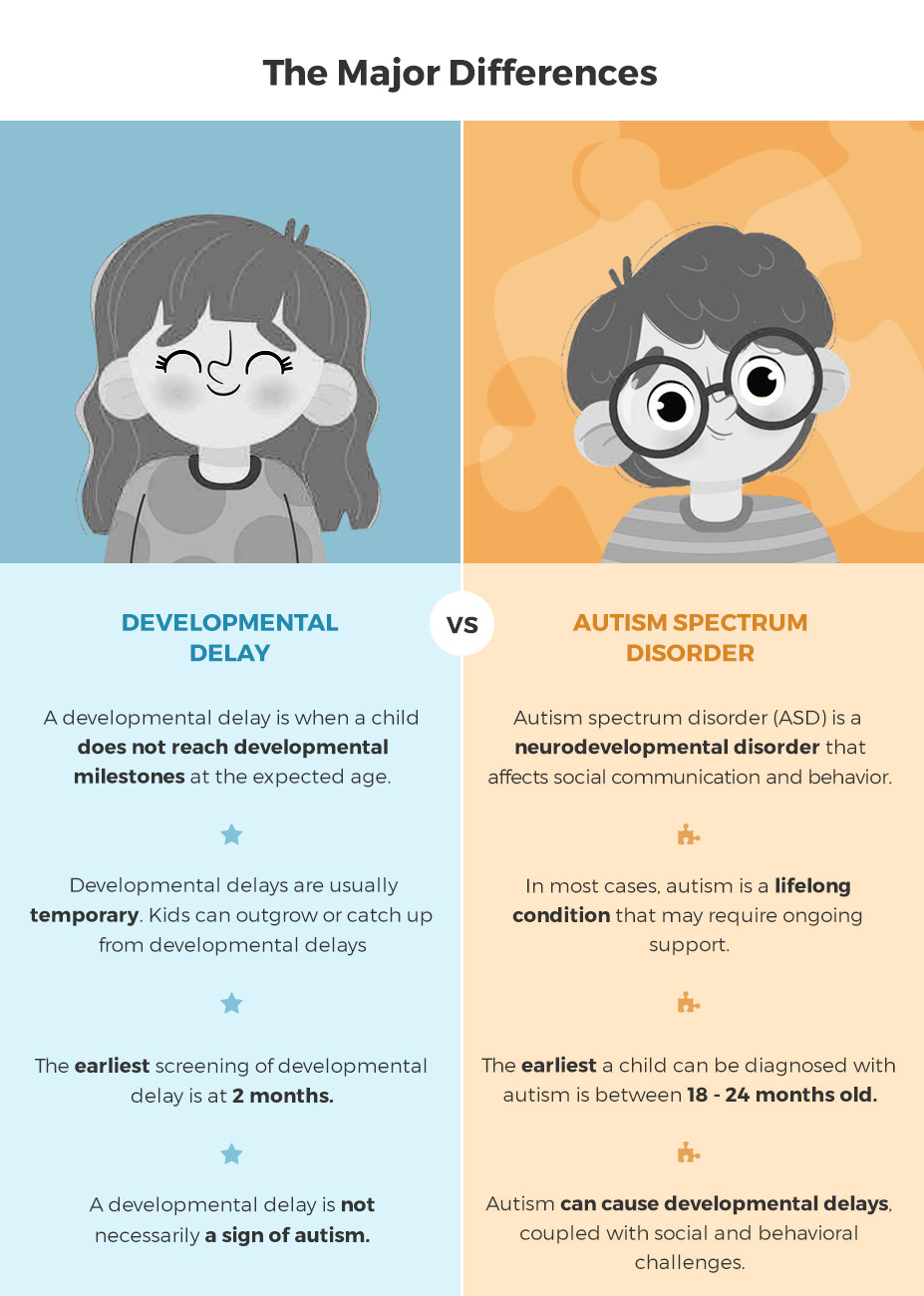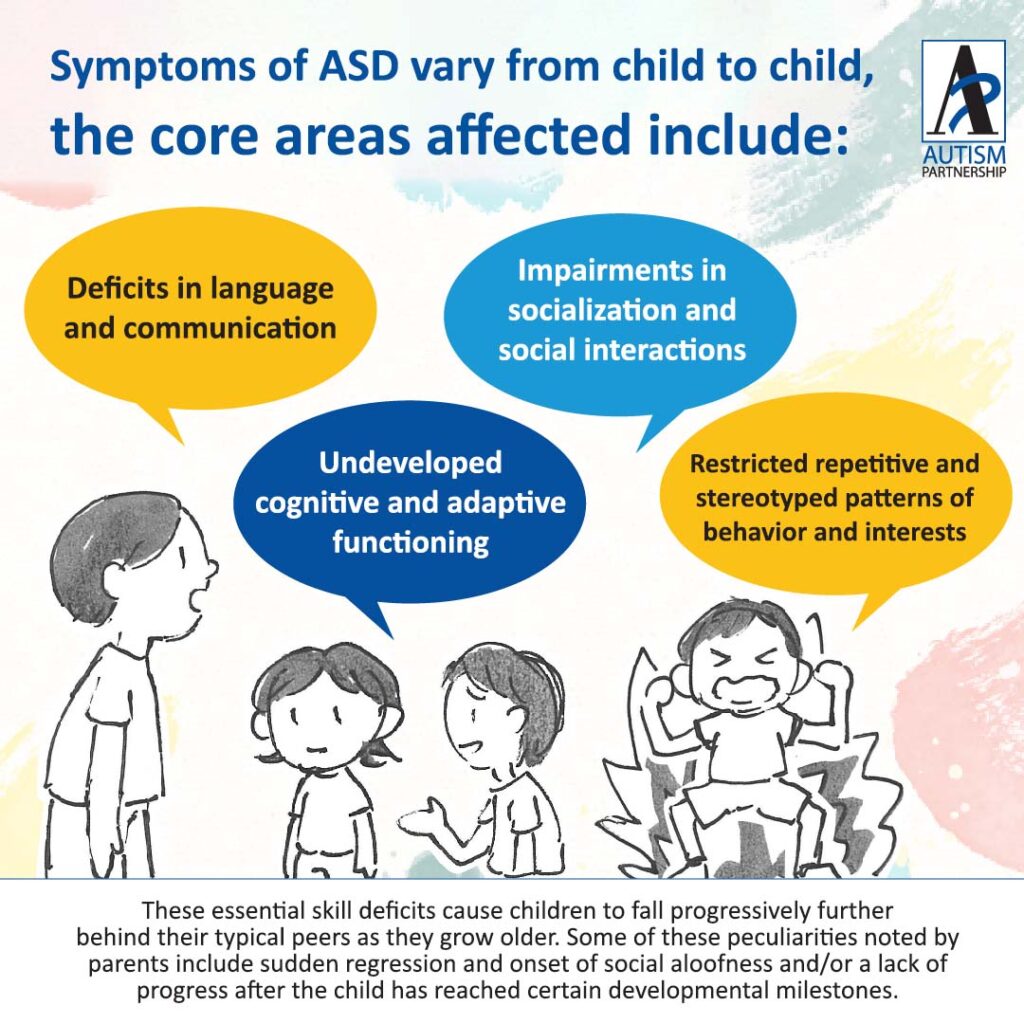Best practices for building sensory-friendly spaces with advice from an Autism Therapist's perspective
Best practices for building sensory-friendly spaces with advice from an Autism Therapist's perspective
Blog Article
Key Symptoms And Signs to Recognize in Individuals With Behavior Autism
When you come across a person with behavior autism, acknowledging vital signs and signs and symptoms is crucial. You might observe difficulties in social communications and interaction, as well as a solid need for regimens. Furthermore, sensory sensitivities can bring about overwhelming experiences. Comprehending these qualities can boost your assistance and treatments, however there's more to discover about how these habits materialize in daily situations. Let's explore what these signs actually resemble.
Difficulties in Social Communications
When you communicate with someone on the autism range, you could see they have problem with social hints and interaction. These difficulties can make social communications feel overwhelming for them. You might see them avoiding eye get in touch with or standing too close or also much away during conversations, which can develop misunderstandings. They may not detect body language or face expressions, making it harder for them to gauge just how others are really feeling.
When they do engage, they could talk regarding their rate of interests in wonderful information without seeing if you're interested. Comprehending these difficulties can aid you come close to interactions with empathy and persistence, cultivating an extra comfy atmosphere for both of you.
Problem With Verbal and Non-Verbal Interaction

Recognizing these indicators is necessary, as it helps you far better support and involve with individuals on the autism range. By recognizing their communication obstacles, you can promote extra purposeful connections and provide a much more encouraging environment.
Repetitive Actions and Routines
Communication difficulties often come with other indications of autism, such as recurring actions and a strong preference for regimens. You could see that individuals with autism frequently take part in certain, repetitive activities, like hand-flapping, shaking, or repeating phrases. These habits can supply convenience and a feeling of control in an usually overwhelming world.
When they follow a structured schedule,Regimens are equally crucial; lots of people prosper. You may locate that adjustments to these regimens can bring about substantial distress. If they have an everyday ritual of eating breakfast at a certain time or complying with a specific route to institution, any disruption can create anxiousness.
Acknowledging these patterns aids you understand their actions and supply support. By accommodating their demand for regular and enabling repetitive activities, you can produce an extra comfy environment that reduces their difficulties.
Sensory Level Of Sensitivities

Common Sensory Triggers
Sensory level of sensitivities can considerably affect life for people with autism, as certain stimuli frequently cause overwhelming responses. Usual sensory triggers include loud sounds, intense lights, and solid smells. You may see that sudden noises, like sirens or alarms, cause stress and anxiety or distress. Fluorescent illumination in shops can really feel severe and unpleasant. Textures can likewise play a significant role; rough textiles or particular food textures may be excruciating for you. Additionally, crowded locations can overwhelm your detects, making it hard to kick back or concentrate. Recognizing these triggers can aid you manage your atmosphere better. By recognizing what influences you, you can take actions to lessen discomfort and improve your day-to-day experiences.
Behavior Actions Clarified
Recognizing your behavioral actions to sensory level of sensitivities is necessary, as they usually disclose exactly how you interact with the world. You might likewise find on your own seeking certain sensory experiences, like deep stress or peaceful atmospheres, to assist ground on your own. Recognizing these patterns aids you understand your needs far better and can direct exactly how you connect them to others.
Coping Techniques Overview
Identifying your sensory sensitivities is just the initial step; now it's time to check out coping approaches that can help you handle those experiences effectively. Start by developing a sensory toolkit tailored to your requirements. This can consist of noise-canceling earphones, fidget toys, or relaxing scents. Establishing a structured go to this website routine can additionally offer predictability, minimizing anxiousness around sensory overload. When you feel overwhelmed, take breaks in a quiet room to regroup. Exercising mindfulness strategies such as deep breathing can aid ground you in the minute. Furthermore, connect your demands with those around you; having supportive loved ones can make a huge distinction. Keep in mind, discovering what works best for you might require time, so be patient and open to trying brand-new approaches.
Limited Rate Of Interests and Emphasis
While several people develop a vast array of passions, those with autism often show limited interests and an extreme concentrate on particular topics. You could observe that someone with autism Visit This Link can invest hours delving right into their preferred subject, whether it's a particular type of train, a certain film, or a clinical idea. This intense focus isn't just a hobby; it can come to be a central component of their identification and social interactions.
You might discover that conversations focus on these interests, and they may have a hard time to participate in wider subjects. For them, these focused passions give comfort and a sense of proficiency. While it is essential to motivate expedition of brand-new subjects, valuing their passions is similarly vital. By understanding and recognizing these restricted rate of interests, you can cultivate a supportive environment where they really feel valued and recognized, enabling for even more significant links and interactions.
Psychological Regulation Problems
People with autism typically deal with challenges in emotional regulation, which can be influenced by their extreme concentrate on details rate of interests. You could see that when a person is deeply involved in a favored task, they can experience solid feelings, whether exhilaration or aggravation. This intensity sometimes makes it tough for them to shift equipments or handle their feelings when points do not go as prepared.

Variability in Developing Milestones
When it involves developing milestones, you'll see that individuals with autism usually show a large range of variability. Some may hit turning points on time, while others may hang back or progression at a various speed. You might see a youngster succeed in language abilities yet struggle with social interactions. This variance can be complex, as traditional benchmarks don't always apply.
It's important to acknowledge that each person's journey is distinct. Some may develop complex skills early, only to deal with difficulties in the future. Others may take longer to accomplish fundamental turning points yet then flourish in certain areas. Observing these patterns can aid you comprehend their toughness and requires better.
Regularly Asked Inquiries
Exactly How Is Autism Identified in Children and Adults?
To detect autism in youngsters and adults, specialists assess habits, interaction abilities, and social interactions. They often use standard tests, interviews, and monitorings to determine if a specific satisfies the criteria for autism range problem.
Are There Various Kinds of Autism Range Disorders?
Yes, there are different kinds of autism range disorders, consisting of Asperger's disorder and pervasive developing disorder-not or else defined. Each type differs in seriousness and characteristics, so understanding these differences can assist you far better assistance people with autism.
What Therapies Are Efficient for People With Autism?
When thinking about effective treatments for individuals with autism, you'll locate options like Applied Habits Analysis, speech therapy, and occupational therapy. Each method can assist boost interaction, social skills, and daily operating customized to specific demands.
Can People With Autism Lead Independent Lives?
Yes, people with autism can lead independent lives. With the appropriate support, skills training, and sources, you can assist them develop self-sufficiency, handle everyday tasks, and prosper in numerous environments, promoting their freedom.
How Can Families Assistance Loved Ones With Autism?
You can support your enjoyed ones with autism by producing a structured setting, encouraging their interests, practicing perseverance, fostering interaction, and promoting social skills. Celebrate their accomplishments, regardless of just how little, and develop a supportive area.
Although many people on the autism spectrum can comprehend and utilize language, they usually deal with significant challenges with both non-verbal and spoken interaction. Recognizing these indications is crucial, as it aids you far better assistance and involve with people on the autism spectrum. You could see that people with autism usually involve in certain, repetitive actions, like hand-flapping, rocking, or duplicating phrases.Sensory sensitivities can considerably impact day-to-day life for individuals with autism, as particular stimuli usually cause frustrating reactions.When it comes to developing turning points, you'll notice that individuals with autism frequently reveal a wide range of irregularity.
Report this page